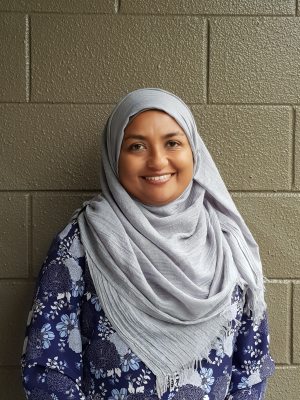Intersections of Race, Language, and Education: 8 Interviews With Scholars to Put in Your Ears
We live in a time when we can find a podcast on every possible conceivable topic. It’s an engaging way of tuning into some professional learning and reflection while we go about our everyday lives. Though there is a vast range of podcasts out there, I personally enjoy listening to interviews with scholars whose work I engage with primarily through books and journal articles. When I share podcast interviews in my teacher education courses, several of my students have responded by saying how hearing educators and researchers talk about the work they do in the more informal setting of a podcast makes it easier to understand and relate to their ideas.
In this blog, I’d like to share eight podcast interviews that intersect race, language, and education. Go ahead and have a listen.
1. Raciolinguistic Ideologies and Decolonizing Anthropologies
In this AnthroPod podcast, Benjamin Bean speaks with Jonathan Rosa, an associate professor from Stanford University, about raciolinguistic ideologies and how coloniality manifests in educational spaces. Rosa talks about how his own experiences led him to do his doctoral research, which looked at how so-called language problems were not really language problems but related to much broader sociocultural and historical ideologies.
2. Bilingual Learners’ Language Practices
In this episode of the We Teach Languages podcast, Stephanie Madison interviews Nelson Flores, an associate professor at the University of Pennsylvania. The interview focuses on the intersections of language and race in a bilingual education context, and the harm that racialized students experience as a result of educational policies and practices.
3. How to Address Racial Slurs in School
The Leading Equity podcast hosted by Sheldon Eakins is a definite favourite. This episode features Rhianna Thomas, an assistant professor at New Mexico State University who explores antiracist and critical literacy education in early childhood classrooms and communities. She talks about her antiracist work in schools as well as at home as a parent of white children. She discusses how white teachers can talk in reaffirming ways to children of colour and create student advocates.
4. Unpacking Racism in Early Years
Becoming an Antiracist hosted by Muna Abdi is another personal favourite podcast; it challenges white supremacy and institutional racism. In this episode, Muna speaks with Jamel Carly Campbell and Liz Pemberton, two early childhood educators in England. The conversation centres on why it is so important to engage in antiracist practice in the early years to combat systemic racism. They discuss how there needs to be a move from focusing on diversity to antiracism at this stage of education.
5. The Pathologization of Language Variations
In this episode of the Parlé Podcast, Chantal Mayer-Crittenden talks to Ian Cushing, a senior lecturer from Brunel University, and Julia Snell from the University of Leeds. Their discussion is based on their recent article, which examines raciolinguistic ideologies they found to be deeply embedded in the school inspectorate system of England. The episode will make you reflect on your own ideologies about language, race, and education.
6. Linguistic Racism in the Tertiary Sector
In this Campus Review podcast, Associate Professor Sender Dovchin from Curtin University unpacks the concept of linguistic racism and how it manifests in the tertiary education sector. The discussion focuses on how students and staff both experience linguistic racism and touches on what institutions and individuals can do to combat this.
7. Why You Shouldn’t Be Afraid of Critical Race Theory
Teresa Fowler, an assistant professor from Concordia University, and Dwayne Brown, a PhD student from York University, talk to Vinita Srivastava on the Don’t Call Me Resilient podcast. Their conversation focuses on how applying critical race theory in Canadian schools has helped not just students but also teachers by evaluating their own biases and strengthening inclusivity and belonging for all.
8. Accent, Race, Work, and Teaching Pronunciation
One of the most frequent ways in which racialized individuals are discriminated against is problematizing their accent. Stacey Margarita from the We Teach Languages podcast interviews Vijay Ramjattan, a scholar of accent, race, and work from the University of Toronto. The episode discusses how accents are linked to racial identities and how accent discrimination acts as a proxy for racism.
Which podcasts do you listen to regularly? Please share in the comments any of your favourite social justice–related podcasts for (language) educators.

